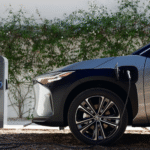The African Development Bank (AfDB) is stepping up its role in Africa’s economic transformation, with Japan emerging as a central partner. The African Development Bank (AfDB), the continent’s largest multilateral lender, is set to play a central role in driving this transformation, working in collaboration with long-standing partners such as Japan. At TICAD 9, the AfDB will convene a series of side events designed to attract Japanese investment in key sectors, including green hydrogen, Mission 300, transport, health, agriculture, and education. With priorities aligned – from sustainable infrastructure and green growth to private sector development – the AfDB and Japan are jointly advancing a shared vision for inclusive and resilient growth across Africa.
Both sides share priorities such as sustainable infrastructure, green growth and private sector development. Japan’s support comes through agencies like the Japan International Cooperation Agency (JICA), Japan Bank for International Cooperation (JBIC) and Nippon Export and Investment Insurance (NEXI), all working in line with the AfDB’s “High 5” development goals.
Japan’s links with the AfDB go back to 1973, when it joined the African Development Fund, the bank’s concessional lending arm. In 1982, it became a non-regional shareholder, marking the start of a long-standing relationship built on trust and shared priorities.
Since 2006, the Enhanced Private Sector Assistance (EPSA) programme has mobilised around US$9 billion in co-financing for African businesses and infrastructure projects. Another initiative, the Policy and Human Resource Development Grant (PHRDG), has supported skills and capacity building across the continent. According to AfDB president Akinwumi Adesina, Japan has contributed JPY 5.3 billion (US$37.4m) to the programme, funding 107 projects in 30 years.
Japan hosts the AfDB’s only office outside Africa. Opened in 2012 in Tokyo’s financial district, it works with the bank’s Asian members, China, India, South Korea and Japan, to attract investment into Africa. The office has helped prepare for TICAD9 and connect Japanese ministries, companies and investors with African projects.
It also plays a role in the Africa Investment Forum (AIF), launched in 2018 by the AfDB and its partners. Unlike traditional conferences, the AIF focuses on closing deals. Dedicated “Japan Special Room” sessions have targeted sectors such as energy, agribusiness and infrastructure.
One of the most visible results of AfDB–Japan cooperation is Kenya’s Menengai geothermal power project. Once complete, the three-plant facility will generate 105 MW of clean energy, enough for 70,000 households and 300,000 small businesses.
The first 35 MW plant is already running. The second is due to come online in 2025, while a third is planned. Japanese firms including Toyota Tsusho are supplying key components, while JBIC, NEXI and Mizuho Bank are financing and insuring the project.
Akinwumi Adesina, who steps down as AfDB president in September after ten years, has prioritised building the relationship with Japan. His successor, Sidi Ould Tah, and Japan’s Prime Minister Shigeru Ishiba have pledged to deepen cooperation, with a focus on green infrastructure, climate resilience, digital innovation, start-up investment and private sector growth.
At TICAD9, Japan will reaffirm its US$5 billion EPSA 6 pledge made in 2022, of which US$2.9 billion has already been disbursed. The funds have supported projects such as agricultural finance in Nigeria, infrastructure in Egypt and governance training for more than 290,000 African public officials.
Japan is also backing Africa’s digital transformation. In Kenya, a new artificial intelligence school – developed with local universities – is training the next generation of tech leaders.
Shuhei Ueno, JICA’s Deputy Director General for Africa, said: “Africa has the population. Japan has the experience and technology. Together, we can co-create solutions for a better world.”
The AfDB–Japan alliance is being framed not as aid, but as a joint effort to build a more resilient and inclusive Africa. In a period of global uncertainty, both partners see this as a model for delivering real and lasting results.










